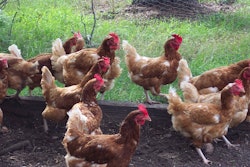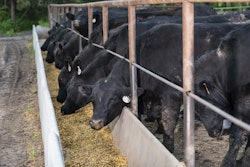
USDA Secretary Perdue: No More Farm Aid After China Trade Deal
- Following the signing of a Phase-1 trade deal, U.S. Agriculture Secretary Perdue said there is no need for a third year of trade-related aid for farmers.
- According to Reuters, Secretary Perdue said that a aid package in 2020 is “unnecessary”.
- It is widely assumed that China will start buying U.S. farm goods to meet the $40 billion in agricultural purchase agreements that it made.
- It is widely believed that China, who buys the bulk of its U.S. agriculture products during the fall and early winter, will likely change the timing of its purchases.
- The third tranche of a $16 billion MFP aid package announced in May, 2019 will be paid to farmers.
- FBN’s Take On What It Means: With the trade tensions between the US and China dissolving, FBN believes that the reducing farmer aid to compensate for trade induced financial hardships is logical. While the details of committed Chinese purchases of US agricultural commodities are murky and will ultimately be guided by local demand and market prices, we believe that the final MFP payment has the ability to represent a material step toward normalization for the U.S. farmer.
China Issues Biosafety Certificates for Domestic Corn & Soy GMO
- China's agriculture ministry issued biosafety certificates for domestically grown, genetically modified (GMO) corn and soybean traits, moving closer to commercialization of GMO grain production.
- Granting of the certificates is one of the last steps required before GMO products can be sold to farmers for planting.
- The certificates were granted to a corn trait and a double-stacked corn product developed by local Chinese companies.
- A local developed GMO soybean trait was also granted a biosafety certificate.
- China granted biosafety certificates to its first GMO corn varieties in 2009, but never allowed them to reach the market because of public opposition.
- Beijing is targeting commercialization of GMO corn and soybeans this year.
- China has long allowed GMO products to be imported for livestock feed.
- FBN’s Take On What It Means: FBN believes that China’s adoption of local GMO corn and soybean genetics for domestic use represents a step toward more consistent yields and consistent corn and soybean production. We also believe that this can be a negative to a neutral event for the U.S. corn producer as a more resilient Chinese corn crop can help stabilize local crop production which has the ability to reduce the already low demand for corn imports.
The risk of trading futures, hedging, and speculating can be substantial. FBN BR LLC (NFA ID: 0508695)










